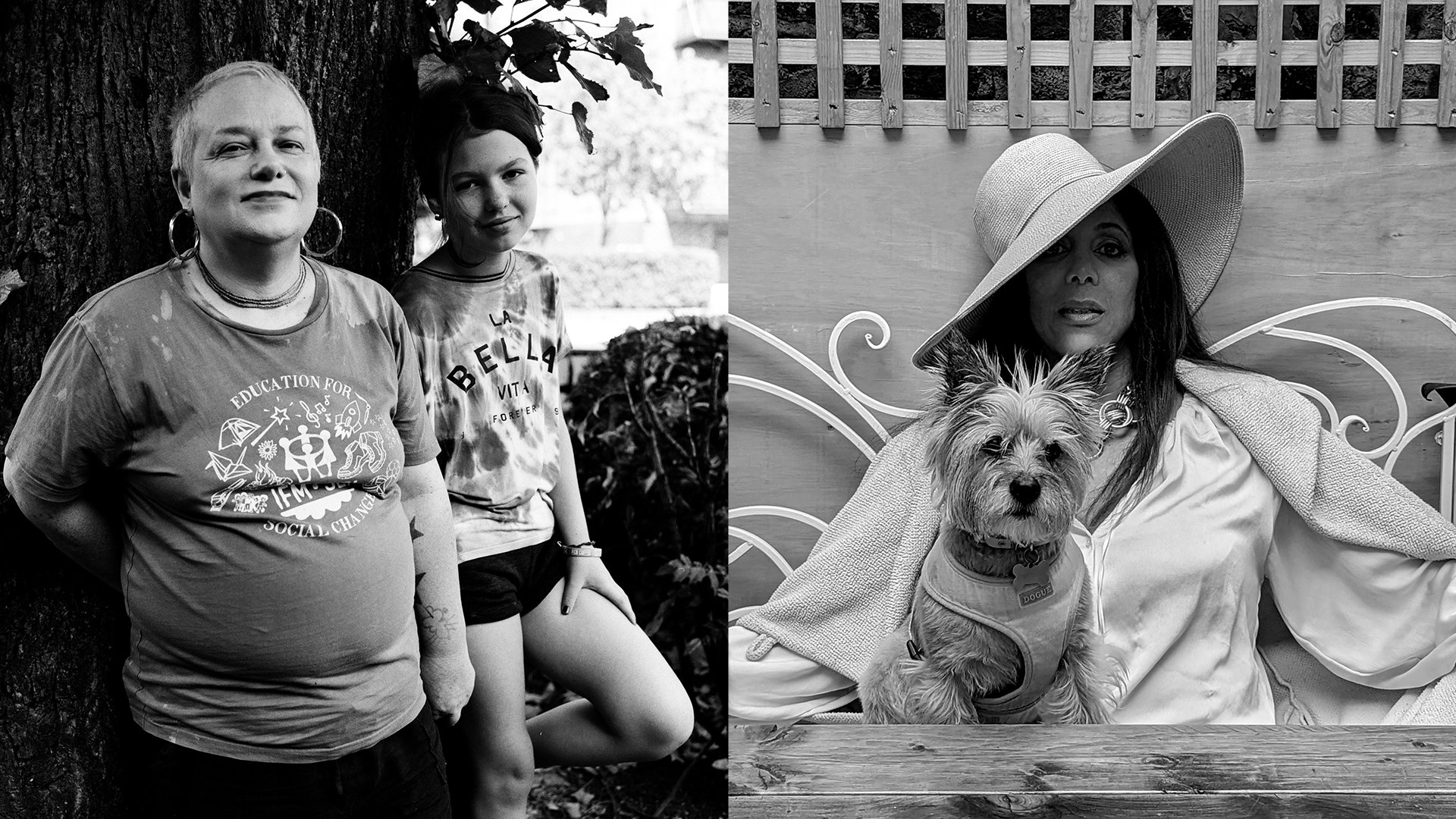Rishi Sunak’s transphobia has arisen as swiftly and as disagreeably as his arrival into office. Earlier this month, it was reported that the 2010 Equalities Act will be reviewed in order to define gender as ‘biological sex’, thus limiting trans peoples’ access to single-sex spaces, including toilets and rape crisis centres. Conveniently preceding this month’s austerity announcements, the flames of the culture wars are being stoked once more and again, trans people have become pawns to distract from unpopular Tory policies. Quelle surprise.
This follows Sunak’s promises earlier this summer to protect words like ‘man’, ‘woman’ and ‘mother’ from the claws of “woke nonsense”. For the sake of preserving family values, he says “we must be able to call a mother a mother” and “ensure that children are allowed to be children”. Putting aside the thinly-veiled queerphobia and transphobia for a moment, what exactly does he actually mean by these vague moral assertions? Who gets to decide who a mother is? And why does he imply that they are under threat?
Subscribe to i-D NEWSFLASH. A weekly newsletter delivered to your inbox on Fridays.
With his belief in the ‘critical importance’ of biology, perhaps for Sunak, the definition of motherhood is defined through birth. Biological motherhood is of course a primary example of motherhood, bearing its own experiences and facets, and trans people are certainly not trying to deny that (despite what Sunak might have you believe). But defining family values through ‘biology’ has implications for everyone, not just trans people. There are plenty of women, trans or not, who aren’t mums biologically – and categorising motherhood in such discrete terms is reductive of the conscious work and undying devotion mothers give. Mothers are mothers because of their unconditional love, care and labour; they are mothers because they mother.
Parenting, and motherhood particularly, holds a specific place in trans culture. On one hand, there is a moral outcry at the proximity between trans people and children, with the likes of Florida’s ‘Don’t Say Gay’ bill prohibiting the discussion of gender identity with young children. On the other hand, trans people have often taken parental roles in their communities to support those dejected by their birth families (we’ve all seen Pose by now, right?). Whilst conservatives might decry trans folks as unsuitable to be around children, within the community the qualities of parenthood are greatly valued and respected. And if these parental figures are able to enact similar levels of devoted care and attention to their chosen families, why must we preclude them from the status of mother?
To get a better understanding of the dynamic between parenthood and transness, we speak to three trans parents: Danielle Brathwaite-Shirley, an artist based in Berlin and the recent mother to a young child; Jaye Ward, a London-based DJ with two teenage girls; and Mzz Kimberley, renowned singer, actress and trans activist who has long served as a mother-figure in the community. They candidly offer their experiences of parenting, their relationship to motherhood and how the process of bringing up children has changed and defined them. Perhaps they can all inform our understanding of motherhood a little deeper.
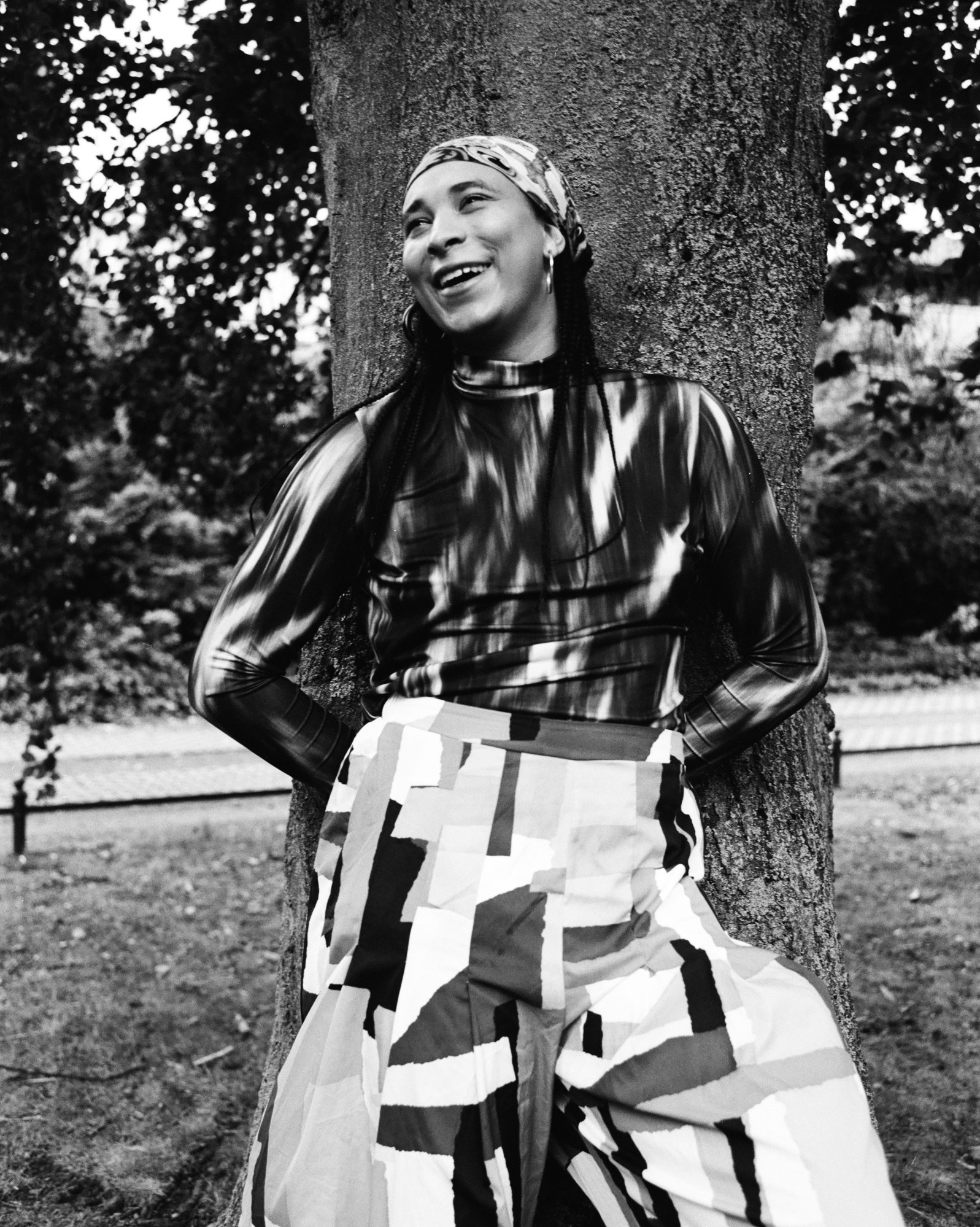
Danielle Brathwaite-Shirley
At the beginning, I was worried that my transness would put my child in danger. But I had to realise that, in order to give her the fullest life, I couldn’t think that way. I just needed to live with her and do what she wanted to do. I take the lead from my child rather than attempting to instill any of my ideologies in her. I want to see where her values are and then slowly move towards somewhere we can both agree. We’re both learning from each other. My transness is out of the water right now — it’s just not relevant. The most relevant thing is focussing on her.
As soon as your child is born, you no longer think about yourself. I just think about feeding her, keeping her safe and making sure she’s okay — that’s it. It’s another level of care and love that I didn’t realise I had. It makes me reassess everything — our identities, our ways of being, everything I do, everything I am, the importance I’ve placed on certain things. I just want to become a better person so I can be a better parent. My life has become a lot more about how I am with people, rather than who I am with those people. A lot of ideas around transness have lost their value to me because I realised that language means nothing unless I am treating others better. Just because you define yourself as something doesn’t make you good, or make you part of a community. It’s how you treat everyone else and how those people treat you.

Having a child has also made me think a lot about family. Alongside my mum and dad, my wider community of chosen family have really been there for me. It’s beautiful when those two worlds come together. But it’s also made me consider who I want to be around — you lose contact with certain friends that are not the right fit for a child to be around. That sounds mean, but you need to make sure that your environment isn’t negative, dangerous or unstable for a child.
It’s funny, everyone misgenders her all the time. No one can tell what a child’s gender is — it’s not really relevant. I feel children innately don’t do this gender thing that we do. I wouldn’t say that’s innately trans, I would say that our language is more limited than the experiences of children. My child wants to wear everything she wants, do everything she wants, be who she wants, even when she doesn’t know who she really is yet. She also calls everyone she likes “mum”. I’d never thought of mum or mother as a gender-neutral term to mean “someone that I love”.
Motherhood tends to be reserved for cis women and I definitely want to make a point that, in my opinion, there is no difference between trans mothering, mothering for a community and mothering a child. Mothering is about looking after someone and making sure they have everything they need to be themselves. It’s all about seeing more than yourself, and knowing that other people are sometimes more important than your own needs.
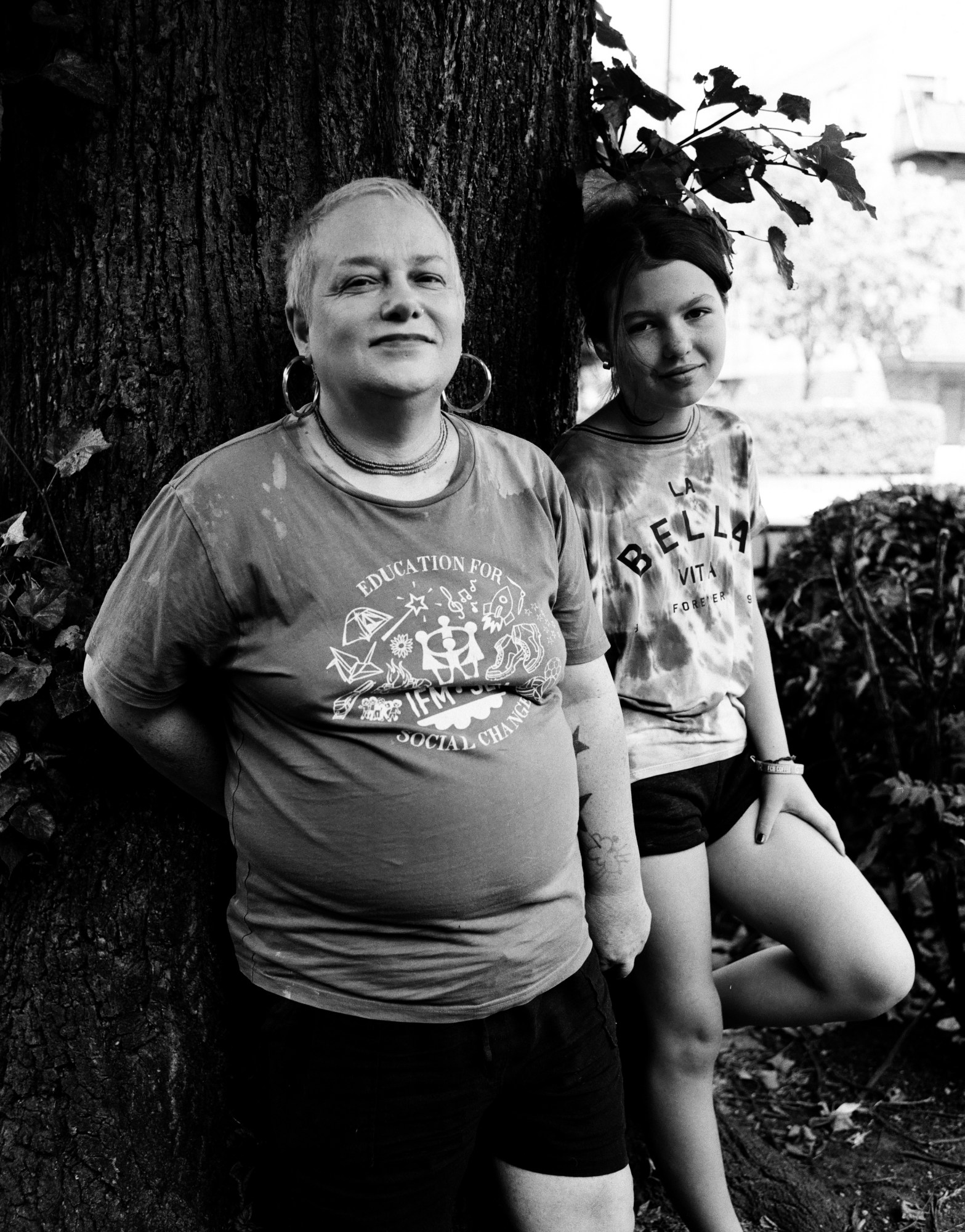
Jaye Ward
I was a parent before I transitioned. My ex-wife Natalie and I wanted kids from the start. However dysfunctional we were, we knew we’d be good at it. She met me when I was, what we would now call, a ‘genderqueer punk’, and a total smackhead. When I got clean, I detransitioned by mistake and we walked off into the sunset together, just happy that we were still alive. Over the years, she’d ask whether I still thought about transitioning and whether that was something I still wanted. I did, but I didn’t have the language to do it. It got to the point where I felt so messed up about it all that our relationship was becoming toast. My life was getting so shit and I realised I might not be able to hang on. But I loved being a parent. We’d just had our second kid and it was the only aspect of my life that felt correct. So in the end, I transitioned so I could see my kids grow up. It was my only option. I just wanted to carry on being a parent and to be around these amazing humans for as long as possible. Now I take everyday watching my kids develop as a blessing.
When I was transitioning, the kids said they couldn’t call me dad because I didn’t look like one. But I’m also not the kid’s mum. We worked that one out really early on. Natalie was their mum and in her head, if I was also their mum, we’d then be lesbians. She wasn’t too into that. So I started looking at gender-neutral parental names. We tried hen, we tried mapa, but none of them really stuck. At the time, I was also working out my new name. I’d decided to start going by Cathleen. I got a deed poll and everything. Immediately my eldest said to me, “we can’t do this. No one’s called Cathleen. And you’re not fucking Irish!” So they asked if they could call me Jaye instead (my previous name began with a ‘J’, and lots of my family and friends had called me that in the past). It sat well with them and it sat well with me, so we just made it into my name and it’s served us well for the last 15 years.
I didn’t make the choice about the name, but I don’t think it was my choice to make in the first place. For us, it was a question of what was best for the kids, what helped them navigate the world, and what was the simplest solution. When you have children, you’re no longer an individual — it’s no longer just you. I didn’t want my name to become a minefield that was difficult for the kids, so we just let them come up with it.
I know trans women who are still dads and I’ve spoken to them numerous times about how they feel about it. They say they’re still dads for simplicity’s sake. I say it’s not simple, its complex. They tell me it’s none of my fucking business. Guess what? They’re right, it’s not. A bit like the singular “they”, language is changing and mutating. Ultimately, it’s a functional thing that helps you move from one thing to the other. Maybe at one point part of me wished I could be called mum too, but instead I’ve changed shape. My mind has changed, my soul has changed and in the end, being called mum might’ve sat a bit weird anyway.
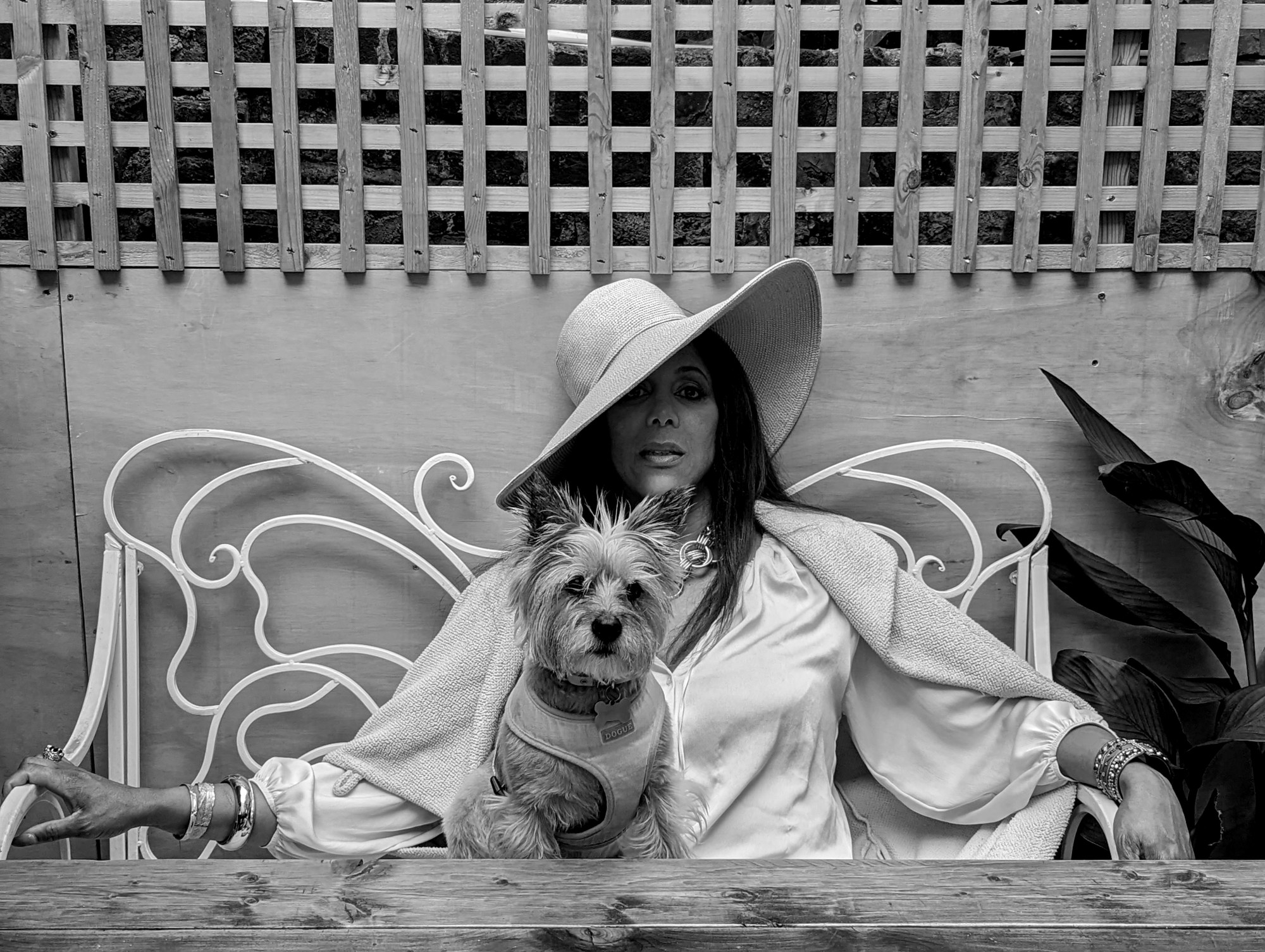
Mzz. Kimberley
I don’t think there’s anything extra special about being a trans mum. Trans people are just like everyday people. But people in the LGBT community have specific needs. Even if they have a good relationship with their biological parents, they can come to me and talk about things that they can’t talk to their biological parents about. We have experiences that a lot of birth parents don’t have, which is why it’s important for our queer youth to have mother figures to turn to. Maybe that’s the special thing about trans mums: the unique life experience that we have.
I’ve always had an impulse to nurture, I was probably born with it. When I was growing up as a young kid in church, I always had this urge to hold someone’s baby. I’ll never forget when my aunt had her first baby, I raced over to my grandmother’s house. My aunt was lying down and next to her I saw this beautiful baby. I got to hold him, learnt how to change diapers and all that. It made me very happy. As I got older, after some years of going wild on the party scene, that nurturing part of my DNA kicked in again. I gained clarity when I stopped the drugs and alcohol, and I realised I had all these young people around me. I started to offer my life experiences, guiding them through what they really should and shouldn’t be doing — telling them not to fight over men who were just using their bodies; teaching them how to stand up for themselves when men grabbed their ass in the clubs. From situations like that, people started calling me mother.
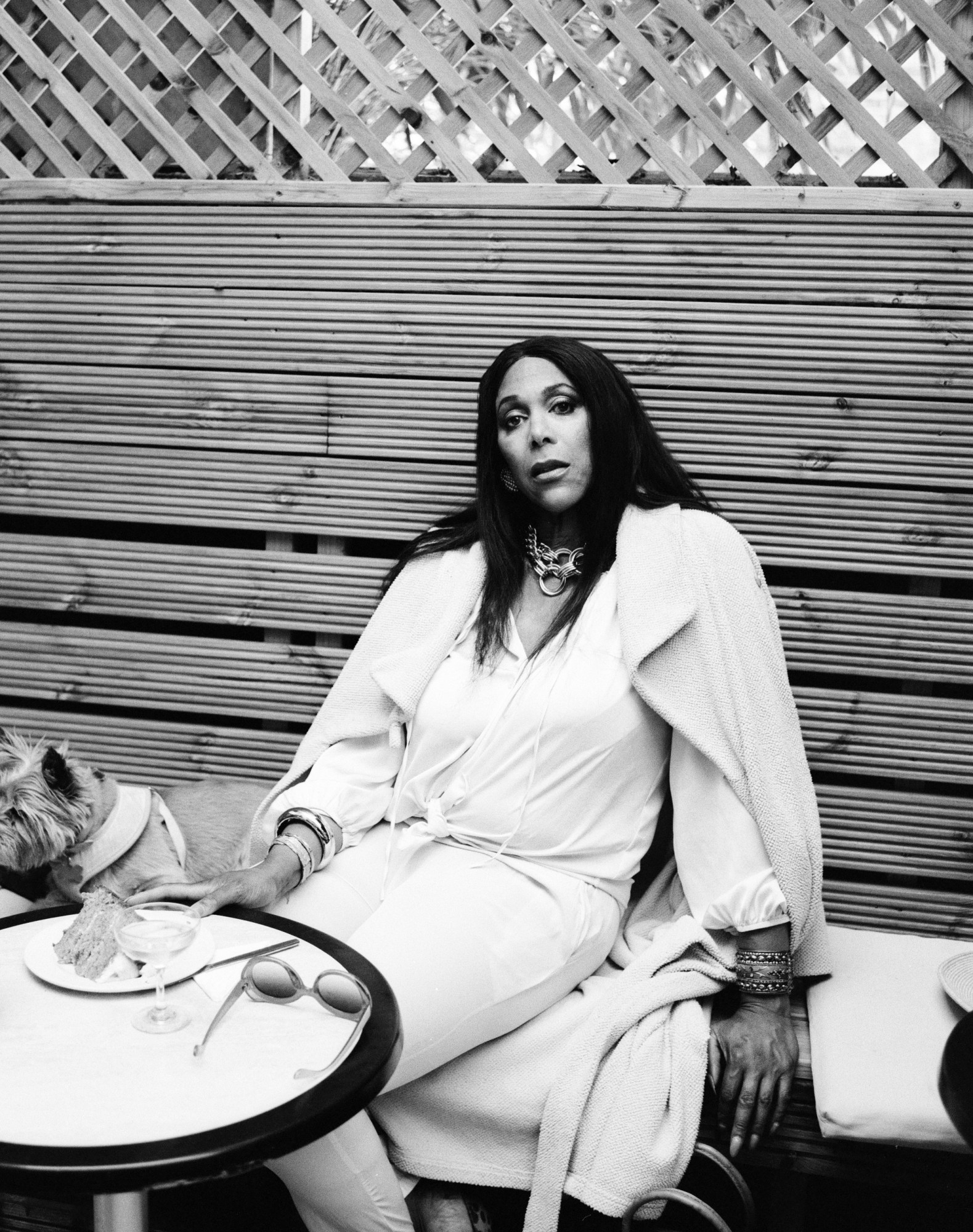
I’ve had lots of children over the years and, just like with any mother, you have to break that apron string. There comes a point when kids say they don’t need you anymore, that they can do it themselves, so you have to let them flourish. And sometimes you have to let them make their own mistakes because that’s the only way they’re going to learn. But you never stop caring. One of my kids got caught up with the law and I was there at the court hearing every single day. That’s what a mother does. It’s unconditional love.
Another one of my other boys suffered from poor health throughout his life and was in a coma for a while. I met him at one of my shows when he was 16. We started speaking and he just wouldn’t go away. I just thought he was an annoying little brat who was too young to be there! But I soon came to learn he’d had a painful upbringing. He grew up in care and never lived with his birth mother, whom I got to know well. I noticed I started easing that pain for him just by listening. Eventually, he started calling me mother. When he was coming out of his coma, his biological mother was sat on one side, I was sat on the other. He looked at us and, still dozy, cried “Hello, Mamas!”. We all laughed. He later said that when he was in the coma, all he could hear was my voice. I had been there with him the entire time. I read to him, I talked to him, I told him we’d get through it, I told him he’d be fine. I read whatever I could, the paper, my scripts, anything that was around.
He later died during the pandemic by taking his own life. It was devastating but sadly not surprising. At the funeral, I sat at the front and his mother sat behind me. For her to allow that, and to put me in charge at the hospital as she did, showed the respect she had for me and everything I’d done for him over the years. It was an acknowledgement of the mother that I’d been to him. We are still friends today.
Credits
Photography Jesse Glazzard
